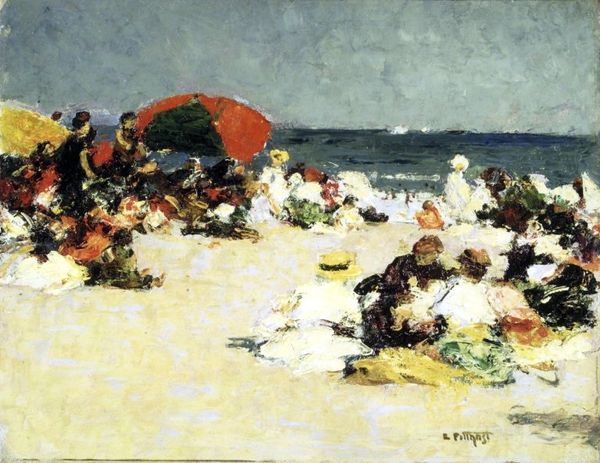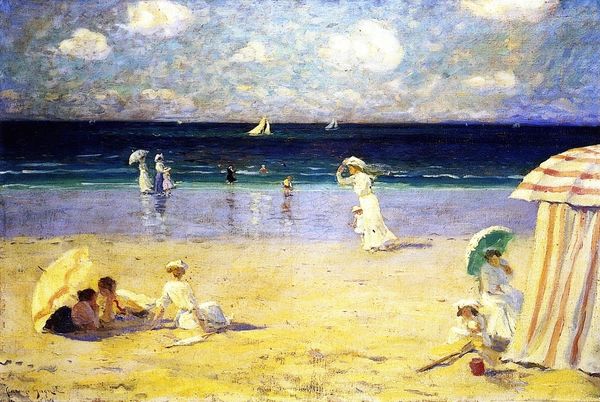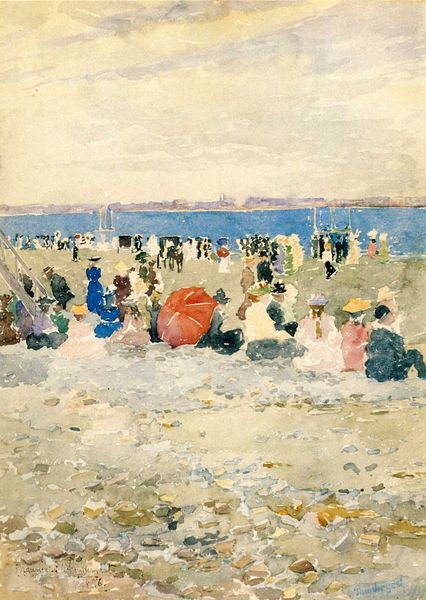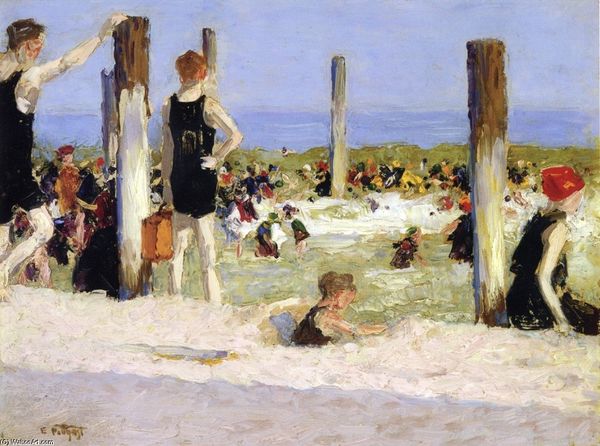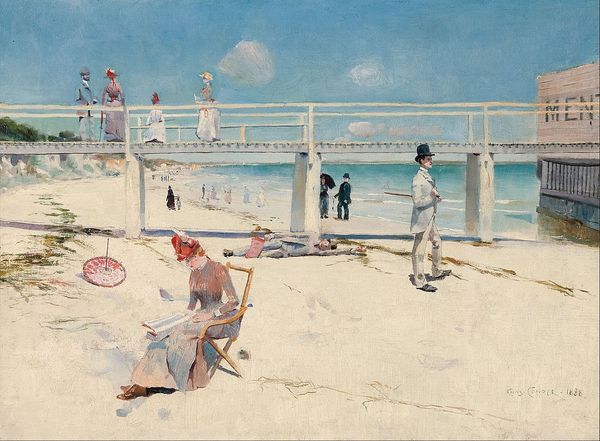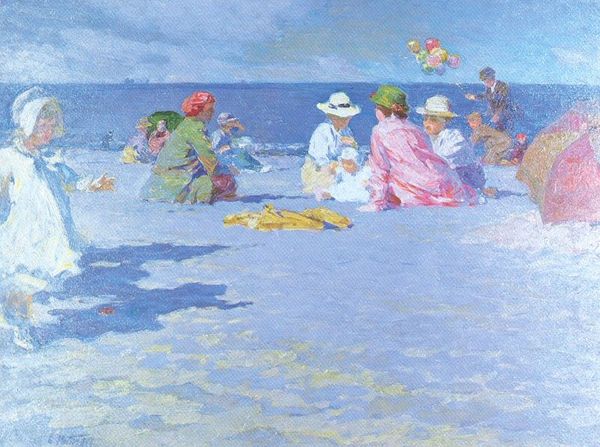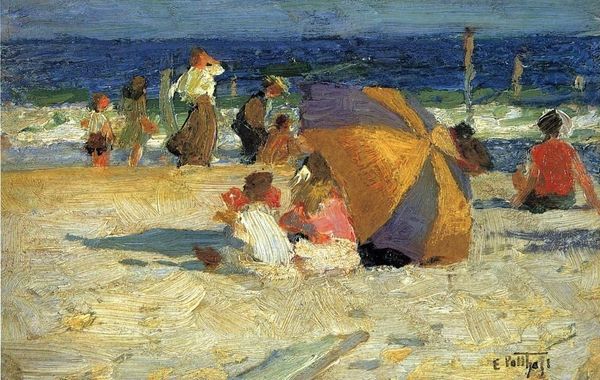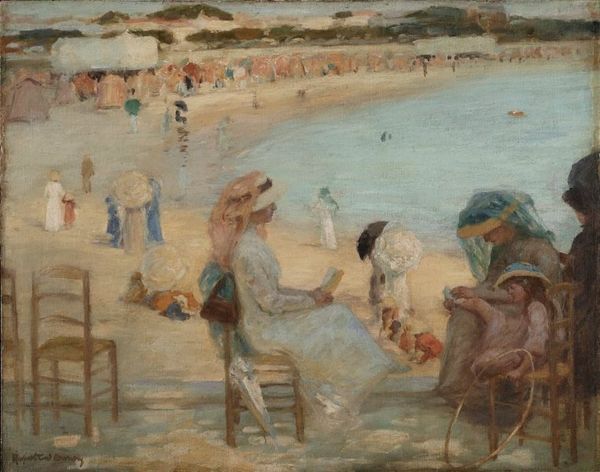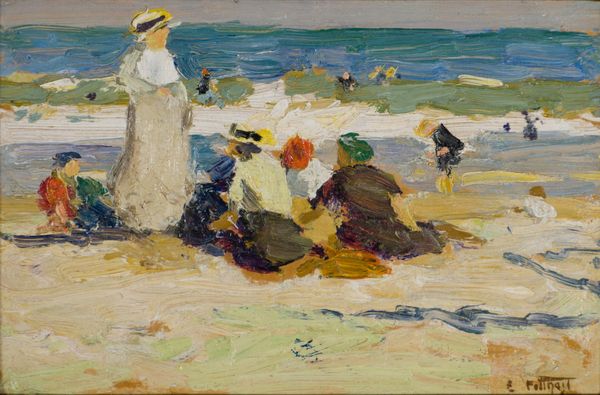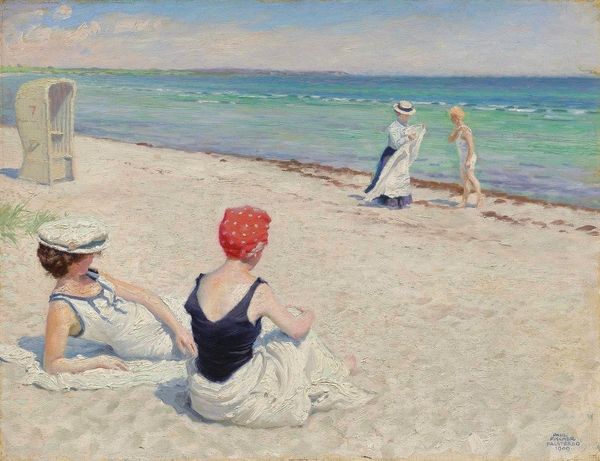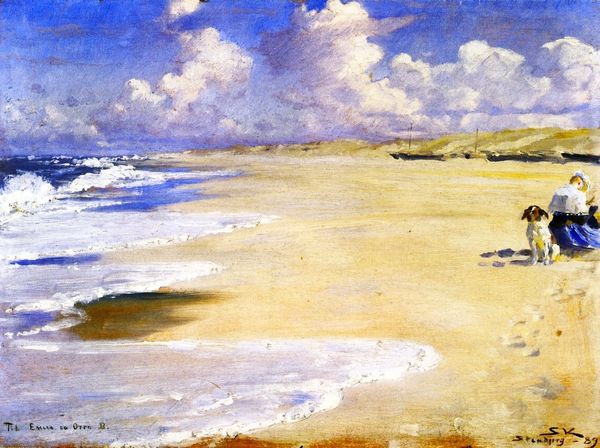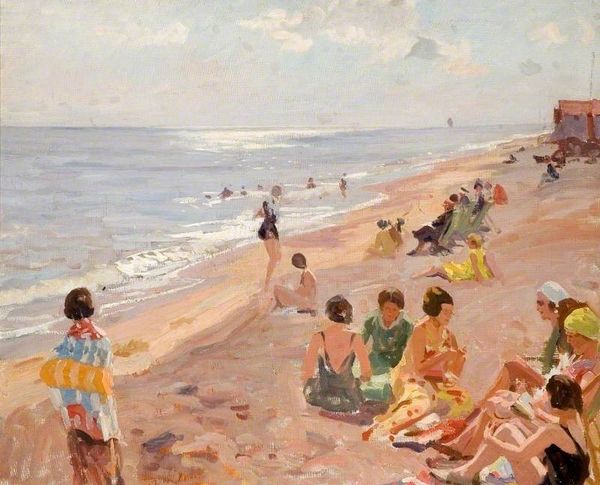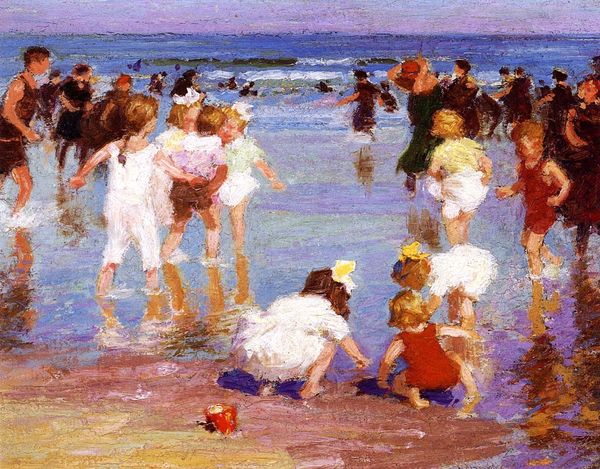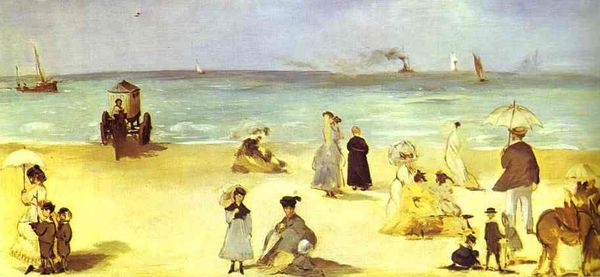
Copyright: Public domain
Curator: This is Edward Henry Potthast’s "Long Beach," painted in 1921 using oil paints. It really captures a slice of leisure time. Editor: Oh, absolutely! It's that lazy afternoon vibe, isn't it? That haze of heat and happy chaos. It feels so familiar. I'm getting nostalgic for something I haven't even lived! Curator: Potthast, deeply influenced by Impressionism, dedicated much of his work to scenes of everyday life. The subject matter, painted en plein air, reveals how his style developed throughout his career. He spent countless hours capturing the fleeting light of these beaches, much like his European counterparts who also abandoned studio-confined work in favor of natural environments. Editor: Right, that shimmering, sun-drenched sand is pure joy. The loose brushstrokes give everything this breezy, ephemeral quality. And the figures, they're not these stiff portraits, but like… little pockets of color enjoying the sun, right? Curator: Precisely. He avoids sharp details, choosing to represent the figures and landscape through dabs of color, creating a sense of movement and energy that is incredibly dynamic. Note the diagonal orientation from bottom-left to upper-right; Potthast composes the space such that the gaze meanders and enjoys the scene unfolding, so to speak. Editor: See, I love how the ocean is just a backdrop, a vague band of blue. The beach itself, filled with people, is the real subject. It's a democratizing approach to art – not grand landscapes or heroic figures, just ordinary folks having a blast at the beach! It really feels, well, modern. Curator: Indeed. And considering the context in which "Long Beach" was painted—the roaring twenties with its post-war prosperity, new ideas around leisure, greater emphasis on enjoyment for people of all backgrounds—the beach transforms into an important site of societal mixing, if not total equity. It invites us to consider where these seaside resorts fit into our evolving urban landscapes. Editor: Looking at it now, there's something comforting in seeing that people haven’t really changed much. We still flock to the water, crave that Vitamin D. "Long Beach" isn't just a pretty painting, it's a timeless record of how we relax. Curator: A charming slice of history that speaks to enduring human needs.
Comments
No comments
Be the first to comment and join the conversation on the ultimate creative platform.
